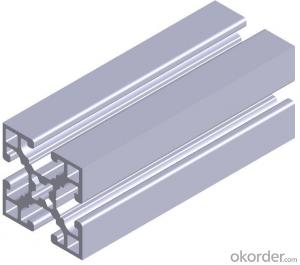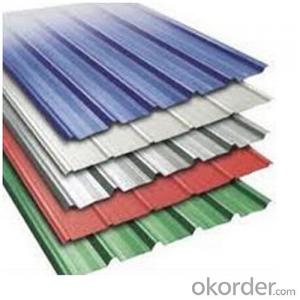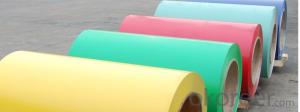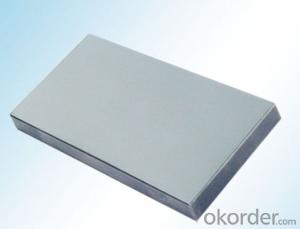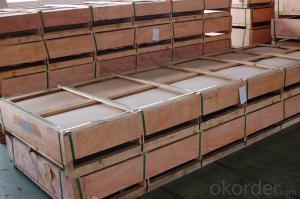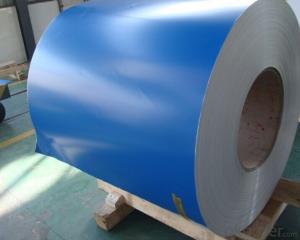Polishing Aluminium Profiles Manufacturer
- Loading Port:
- Shanghai
- Payment Terms:
- TT OR LC
- Min Order Qty:
- 20 m.t.
- Supply Capability:
- 2000 m.t./month
OKorder Service Pledge
OKorder Financial Service
You Might Also Like
1.Structure of Polishing Aluminium Profiles Manufacturer Description:
Polishing Aluminium Profiles Manufacturer (also spelled anodising, particularly in the UK and Australia) is an electrolytic passivation process used to increase the thickness of the natural oxide layer on the surface of metal parts. Anodized aluminium surfaces, for example, are harder than aluminium but have low to moderate wear resistance that can be improved with increasing thickness or by applying suitable sealing substances.
2.Main Features of thePolishing Aluminium Profiles Manufacturer:
High corrosion-resistance;
weather-resistance;
heat-resistance;
alkali-resistance and impact-resistance properties.
3.Polishing Aluminium Profiles Manufacturer Images:
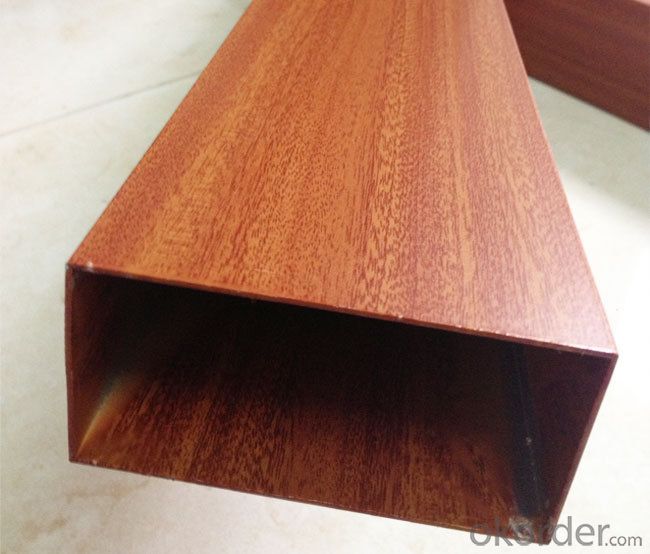
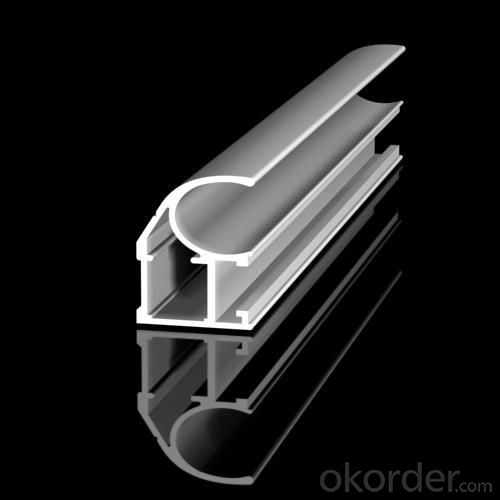
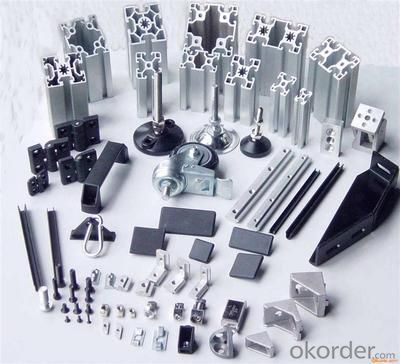
4.Polishing Aluminium Profiles ManufacturerSpecification:
1. Material: 6063,6061,6060,6005,6005A,etc.
2. Temper: T5 or T6
3. Finish: Mill finish, anodizing, powder coating, electrophoresis, wooden transfer or pvdf/carbon-flouride coated, polishing, brushing, sand blasting
4. Various colors: Silver, bronze, black, gold, blue, grey, champagne, bright, etc.
5. Machining: Cutting, punching, drilling, tapping, milling, bending, welding, CNC etc.
5.FAQ:
①How about your company?
A world class manufacturer & supplier of castings forging in carbon steel and alloy steel,is one of the large-scale professional investment casting production bases in China, consisting of both casting foundry forging and machining factory. Annually more than 8000 tons Precision casting and forging parts are exported to markets in Europe, America and Japan. OEM casting and forging service available according to customer’s requirements.
②How to guarantee the quality of the products?
We have established the international advanced quality management system,every link from raw material to final product we have strict quality test;We resolutely put an end to unqualified products flowing into the market. At the same time, we will provide necessary follow-up service assurance.
- Q:How is the thickness of an aluminum sheet measured?
- Various methods can be employed to measure the thickness of an aluminum sheet. One commonly used technique involves the utilization of precision measuring tools like a micrometer or caliper. By placing the micrometer on one end of the sheet and gradually closing it until it reaches the other end, an accurate measurement of the thickness can be obtained. This particular method is suitable for thin aluminum sheets. For thicker sheets, a thickness gauge can be utilized. This gauge consists of a compact handheld device equipped with a probe that is pressed against the surface of the sheet. The gauge then displays the thickness reading on a screen. This approach proves especially advantageous when measuring thicker sheets as a micrometer or caliper may not be feasible. An alternative means of measuring the thickness of an aluminum sheet involves the use of an ultrasonic thickness gauge. This tool emits ultrasonic waves from a transducer, which are subsequently reflected back from the surface of the sheet. By calculating the time taken for the waves to travel and return, the gauge can determine the thickness of the sheet with great accuracy. This method is particularly effective for measuring the thickness of large or irregularly shaped aluminum sheets. To summarize, the thickness of an aluminum sheet can be determined using a variety of tools such as a micrometer, caliper, thickness gauge, or ultrasonic thickness gauge, depending on the thickness and size of the sheet.
- Q:Can aluminum sheet be used for reflective surfaces?
- Indeed, reflective surfaces can be achieved with the use of aluminum sheet. Renowned for its exceptional reflectivity, aluminum is widely preferred for an array of applications that call for reflective surfaces. By skillfully polishing aluminum sheets, they can attain a remarkable luster, enabling them to reflect light and produce a mirror-like effect. Consequently, they prove to be the perfect choice for applications such as lighting fixture reflectors, solar panels, mirrors, and decorative purposes. Moreover, owing to its reflective properties, aluminum is an ideal material for situations necessitating heat reflection, including thermal insulation and roofing materials. In summary, aluminum sheets offer versatility and effectiveness when it comes to generating reflective surfaces.
- Q:What is the best way to paint over aluminium siding? Should it be primed? What type of prime should be used? What type of paint should be used on this surface? What brush or roller should be used to apply the paint?
- while I've never done it, my brother in law painted their aluminum siding. He used paint he bought at sears- go to a paint store, one that only sells paint and pick their brains. He power washed the house, primed it and used a sprayer to apply both the paint and the primer....the house looks like they replaced the siding.
- Q:Are the aluminum sheets suitable for automotive applications?
- Yes, aluminum sheets are suitable for automotive applications. Aluminum is a lightweight material with high strength-to-weight ratio, making it ideal for use in the automotive industry. It offers several advantages such as improved fuel efficiency, better handling, and increased performance. Additionally, aluminum is resistant to corrosion, which is beneficial for automotive applications as it helps increase the lifespan of vehicles. Moreover, aluminum sheets can be easily formed and molded into various shapes, allowing for greater design flexibility in automotive manufacturing. Overall, the use of aluminum sheets in automotive applications has become increasingly popular due to their numerous advantages and positive impact on vehicle performance and sustainability.
- Q:Are aluminum sheets suitable for use in food processing or storage?
- Yes, aluminum sheets are suitable for use in food processing or storage. Aluminum is a non-toxic and non-reactive metal, making it ideal for direct contact with food. It provides a protective barrier against light, oxygen, and moisture, which helps to maintain the quality and freshness of food. Additionally, aluminum sheets are lightweight, durable, and can be easily cleaned, making them a popular choice in the food industry.
- Q:How do you join two aluminum sheets together?
- There are several methods to join two aluminum sheets together. One common technique is using mechanical fasteners such as screws, rivets, or bolts. These fasteners can be drilled or punched through the sheets, creating a secure connection. Another method is using adhesives specifically designed for aluminum bonding. These adhesives provide a strong and durable bond between the two sheets. Welding is another popular option, where the aluminum sheets are melted and fused together using heat. This method requires specialized equipment and expertise. Lastly, a technique called clinching can be used, which involves applying pressure to deform the aluminum sheets and interlock them together. Each method has its own advantages and considerations, depending on the specific application and desired outcome.
- Q:Can aluminum sheet be used for soundproofing?
- Yes, aluminum sheet can be used for soundproofing to some extent. Aluminum is a dense and rigid material, making it effective at blocking sound transmission. When used in conjunction with other soundproofing materials, such as foam or mineral wool, it can further enhance soundproofing capabilities. However, it is important to note that aluminum sheet alone may not provide complete soundproofing, as it may still allow some sound to pass through due to its thin nature. Additionally, proper installation and sealing of any gaps or openings is crucial for maximizing the soundproofing effectiveness of aluminum sheet.
- Q:I have a friend to purchase a number of aluminum, used to make computer cooling plate. He asked me to help with the supplier, can I look at the Internet, there are many kinds of aluminum, would like to ask: what kind of computer cooling plate used to do a bit better? What are the suitable suppliers in Guangdong?
- Aluminum extruded radiator:It is widely used in modern material with good heat dissipation cooling industry, most of them use 6063 T5 high quality aluminum, its purity can reach above 98%, the heat conduction ability, low density, low price so get the favor of the major manufacturers.
- Q:Its been bugging me for years and i want to know why they say aluminum and not aluminium like it is spelt in the Oxford English dictionary and more importantly the universal periodic table, accepted by all countries, does anyone know why? I would like all opinions on this matter, if possible, thank you
- Because it's written Aluminum on the periodic table.
- Q:What are the advantages of using aluminum sheets in automotive applications?
- There are several advantages of using aluminum sheets in automotive applications. Firstly, aluminum is lightweight, which helps improve fuel efficiency and overall vehicle performance. Secondly, aluminum has high strength-to-weight ratio, making it durable and resistant to corrosion. This ensures a longer lifespan for automotive components made from aluminum sheets. Additionally, aluminum is easily recyclable, making it an environmentally friendly choice. Lastly, aluminum sheets can be easily formed and molded into complex shapes, allowing for greater design flexibility in automotive manufacturing.
1. Manufacturer Overview |
|
|---|---|
| Location | |
| Year Established | |
| Annual Output Value | |
| Main Markets | |
| Company Certifications | |
2. Manufacturer Certificates |
|
|---|---|
| a) Certification Name | |
| Range | |
| Reference | |
| Validity Period | |
3. Manufacturer Capability |
|
|---|---|
| a)Trade Capacity | |
| Nearest Port | |
| Export Percentage | |
| No.of Employees in Trade Department | |
| Language Spoken: | |
| b)Factory Information | |
| Factory Size: | |
| No. of Production Lines | |
| Contract Manufacturing | |
| Product Price Range | |
Send your message to us
Polishing Aluminium Profiles Manufacturer
- Loading Port:
- Shanghai
- Payment Terms:
- TT OR LC
- Min Order Qty:
- 20 m.t.
- Supply Capability:
- 2000 m.t./month
OKorder Service Pledge
OKorder Financial Service
Similar products
New products
Hot products
Hot Searches
Related keywords
